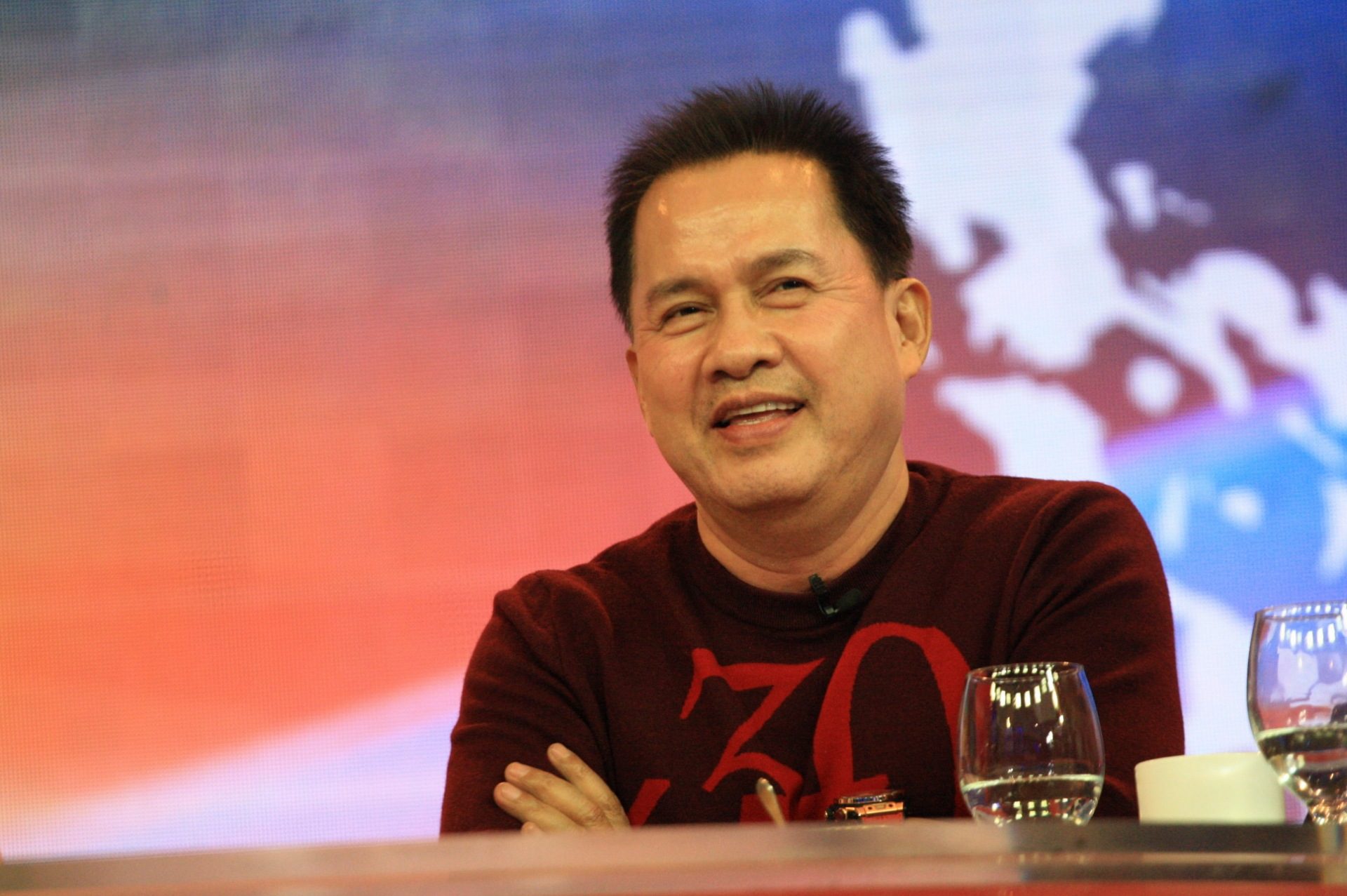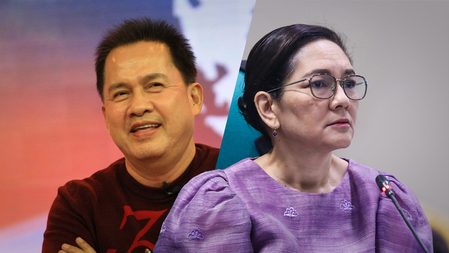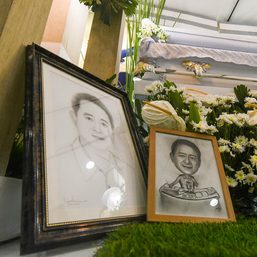SUMMARY
This is AI generated summarization, which may have errors. For context, always refer to the full article.

MANILA, Philippines – While doomsday preacher Apollo Quiboloy teases his hideout and enjoys vows of protection from Senate allies of his close friend, former president Rodrigo Duterte, the US government also moves with its own trafficking case against him in California – the latest being, the unsealing of a warrant.
California judge Terry Hatter Jr. unsealed the warrants and returns against Quiboloy and other defendants on March 1, saying it was “upon application of the government and for good cause shown.”
Federal warrants are sealed to ensure optimum effectivity in arresting the subjects, in this case Quiboloy, seven personnel of his Kingdom of Jesus Christ (KOJC), and one paralegal who are all indicted for trafficking. They sent KOJC members to California using fraudulent means, and then forced them to work long hours to solicit and remit money back to the Philippines.
The warrants were issued in November 2021 by the Federal Bureau of Investigation (FBI). Quiboloy was never arrested, and just days ago teased his whereabouts through an audio uploaded online by his equally-embattled media network.
The US Attorneys’ Office said that they were moving to unseal the warrants because some of the defendants are already in custody. “As a number of defendants were already taken into custody on the first superseding indictment (FSI), the FSI is unsealed under the terms of the sealing order,” said Assistant US Attorney Gregory Staples.
Unsealed warrants immediately mean these documents will be made public. But will it have another effect? Will the US soon request for extradition?
In the case of Israeli businessman Yuval Marshak, who was wanted in the US for wire fraud, the US government requested to unseal the warrant against him to file a formal request for extradition, and to be able to share the warrant with the International Criminal Police Organization or Interpol.
Process of extradition
If the US does file a request for extradition, it will be first assessed by the Department of Foreign Affairs (DFA). One question the DFA should answer is whether it is an extraditable offense. An offense is extraditable if it can also be considered a crime under Philippine law with a penalty of more than one year jail time.
If the DFA determines that it is indeed an extraditable offense, it will forward the same to the Department of Justice (DOJ), which will then start the formal extradition proceedings in court.
The US government can even request the Philippine government for a provisional arrest ahead of its request for extradition if it finds the issue to be urgent. In this case, the request goes straight from the US DOJ to the Philippine DOJ.
On Friday, March 8, DOJ spokesperson Assistant Secretary Mico Clavano told reporters that they have yet to receive an extradition request in light of Quiboloy’s case.
On March 4, the Philippine DOJ reversed an earlier ruling of prosecutors and ordered the filing of charges against Quiboloy for sexual abuse of a minor and qualified human trafficking in Davao City and Pasig City, respectively. How will this affect the extradition? It could depend on the decision of the Marcos government.
Under the treaty, if a person is being prosecuted in the Philippines, the government can decide to turn that person over to the US first and then finish prosecution there. Similarly, the Philippines can also decide to postpone the extradition to finish prosecution here.
In the meantime, what is certain is that the US trial for the defendants in custody, including KOJC personnel, will continue. The paralegal has already admitted to helping obtain fraudulent visas for the KOJC members, and has vowed to help the US government’s case.
Opposition Senator Risa Hontiveros, using the Senate’s power of contempt, has been pushing for an arrest warrant against Quiboloy to detain him until he cooperates with the inquiry. Duterte’s allies, Senators Robin Padilla, Bong Go, Imee Marcos and Cynthia Villar, have objected to Hontiveros’ proposal. – with reports from Herbie Gomez/Rappler.com
2 comments
How does this make you feel?









![[Just Saying] SONA 2024: Some disturbing points](https://www.rappler.com/tachyon/2024/07/TL-marcos-sona-points-july-23-2024.jpg?resize=257%2C257&crop=335px%2C0px%2C720px%2C720px)






I hope that, regarding Pastor Quiboloy’s case, the US justice system will not overtake our justice system. It will be sad to note that the said justice system is faster than ours, especially when the victims are Filipino citizens.
I appreciate the action of California Judge Terry Hatter Jr. in particular and to the US Government in general. If justice for the victims of Pastor Quiboloy moves faster under the US Government than that of our government, then it speaks clearly and loudly about the kind of Justice System that we have in our country.